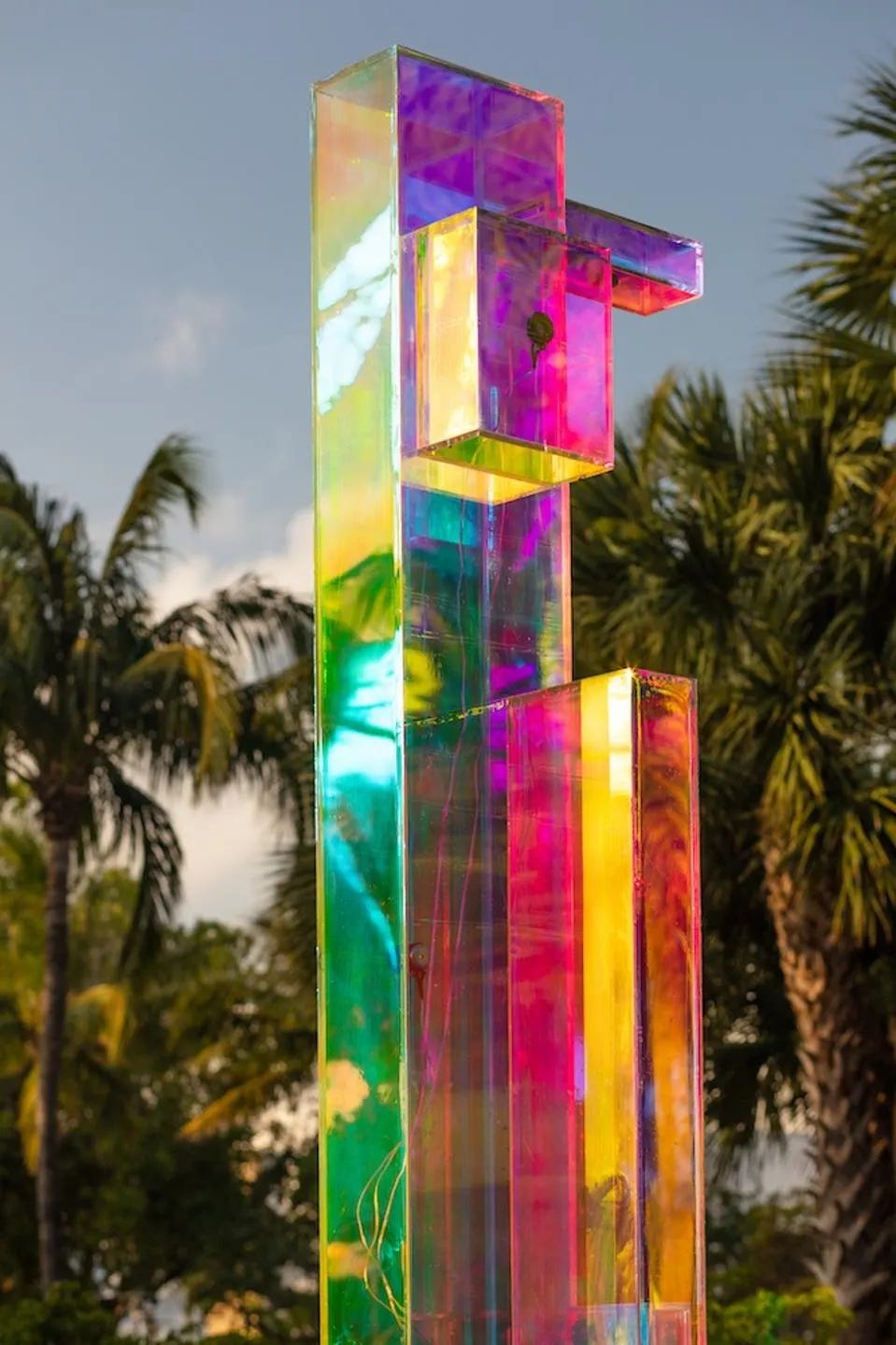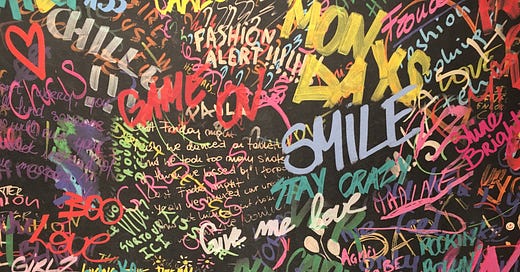What Does Mom Always Say?
How the phrases our mothers say influence (haunt) us, and a call to share yours
A few months ago, Stylist ran a feature titled, “The Words That Stick”. It began with, “From warnings to wisdom, the things our mothers say can linger in the back of our minds for a lifetime…” Four women were interviewed for the article about the one thing their mothers always said to them growing up, or even still say now. Then, a psychotherapist, Susanna Abse, analyzed the phrases and offered a take on why those were the most memorable sentences for these women. The “maternal mantras” included:
Don’t make a fuss.
Always put property in your own name.
You never let me down.
You look a *right bugger* in that.
The psychotherapist’s analysis was interesting and often, predictable but mostly, it was fascinating to see how the way the women interpreted their mother’s sayings was often vastly different than the therapist’s take.
I love this topic and years ago, I pitched a similar story (minus the therapy part) and asked a few friends what their mothers always say or said. There were a few anecdotes about how my friends, now adults, always vowed never to say the same thing themselves. However, once they had their own children, the same phrase they heard their mother say while growing up was now, often accidentally, part of their own maternal vernacular.
“It’s no skin off my nose’ – I absolutely hated this, it made no sense to me and visually gave me the creeps as a kid… but lo and behold, I have uttered these words to my kids,” said one friend.
“Do wesela się zagoi.” (Polish-English translation: It will heal before the wedding.) “My mom would always say this when I hurt myself and though I get she tried not to make a big deal out of it to keep me distracted, I felt brushed off because sometimes the cuts/wound really did hurt,” said another friend. “And then snap, I said it to my daughter once.”
“One of my dad's favourite lines still is ‘Thinking is not the same as doing.’ My sisters and I use this phrase regularly.
My mom's favourite saying was, ‘Just wait until you have kids,’ an expression that framed the misunderstood complexity of parenting, but also had a somewhat threatening tone to it.” –a former colleague told me.
My mom still often says, “It could be worse!”, a phrase I both love and loathe. Without making this into my own psychotherapy session, I know where it comes from and I understand its well-intentioned meaning, but sometimes, I want to respond, “But it could be better!” Because of my mixed emotions around this phrase, I don’t use it with my children, or at least not consciously, but I do say something else my mom often repeats I find incredibly comforting, albeit challenging to remember in an anxiety-ridden moment: “Don’t worry about things that may never happen.” (Both of these phrases are always said in Polish.)
A couple of years ago, I posted on Instagram about the work of Miami-based artist Najja Moon who, in 2021 installed the public art monument, “Your Momma’s Voice in the Back of Your Head,” in Collins Park, Miami Beach**. The monument had multidirectional speakers encased in glass that played English, Spanish and Creole recordings of “mantras, scolds and colloquialisms” courtesy of Moon’s own mother as well as moms of friends and family. As people viewed and listened, they were also invited to record their own sayings.

The transparent and reflective quality of the monument represented the idea that when we look at ourselves, we often see our mothers, especially as we age (true story for me). “You start to understand, they did the best with what they had,” Moon said in an interview. The recordings of the mothers in the monument were a mixture of warm, caring (“You look beautiful”; “I love you”) but also harsh (“I already said no. Don’t make me tell you again.”), critical and even a bit mean (“I brought you into this world and I can take you right out!”).
Back to the Stylist article, there was one thing the therapist noted I want to share here because it is a good reminder that verbal language is only one part of how we were mothered and how we mother.
“Our mothers tell us all sorts of things: my own was constantly saying ‘do unto others as you would have them do unto you’, but really if I learnt to be kind to people it was because I watched her doing it. Witnessing is a powerful thing, and there are few people daughters watch more closely than their mums.” - Susanna Abse
I would love to hear what your mom, or any maternal figures in your life, said that stuck with you, for better or for worse. What do you say to your children? Let me know in the comments!
*right bugger*: As the interviewee in the article points out, the term “bugger” has many definitions. These interactions with her mom took place in the 1980s in the North of England, and the term was used affectionately when the mom was addressing herself. Bugger can also be used as an insult. Also, see “bugger off” (get away).
** On December 27th, 2021, Moon’s incredible monument “Your Momma’s Voice in the Back of Your Head” was maliciously defaced. It was a violent homophobic and racist attack. You can read more about it here as well as the artist statement in response and what it means to work in the realm of public art especially as a queer, Black woman.





I always joke, as the daughter of a Japanese immigrant mom, that though I didn’t learn to speak Japanese, I know “Mom Japanese” really well. “Stop fighting!” “Be quiet!” etc. As well as all the basic polite phrases and the ritual phrases one says as you leave the house and when you return home. I didn’t teach those to my children, they didn’t feel like “my” words, they were my mom’s. I do especially miss the going out/coming home phrases and I’ve been recently wondering if I want to try to get my husband to do it. It would be SO foreign for him, and for me to hear him speak any Japanese. But it’s such a nice ritual, and helped me feel safe and loved growing up.